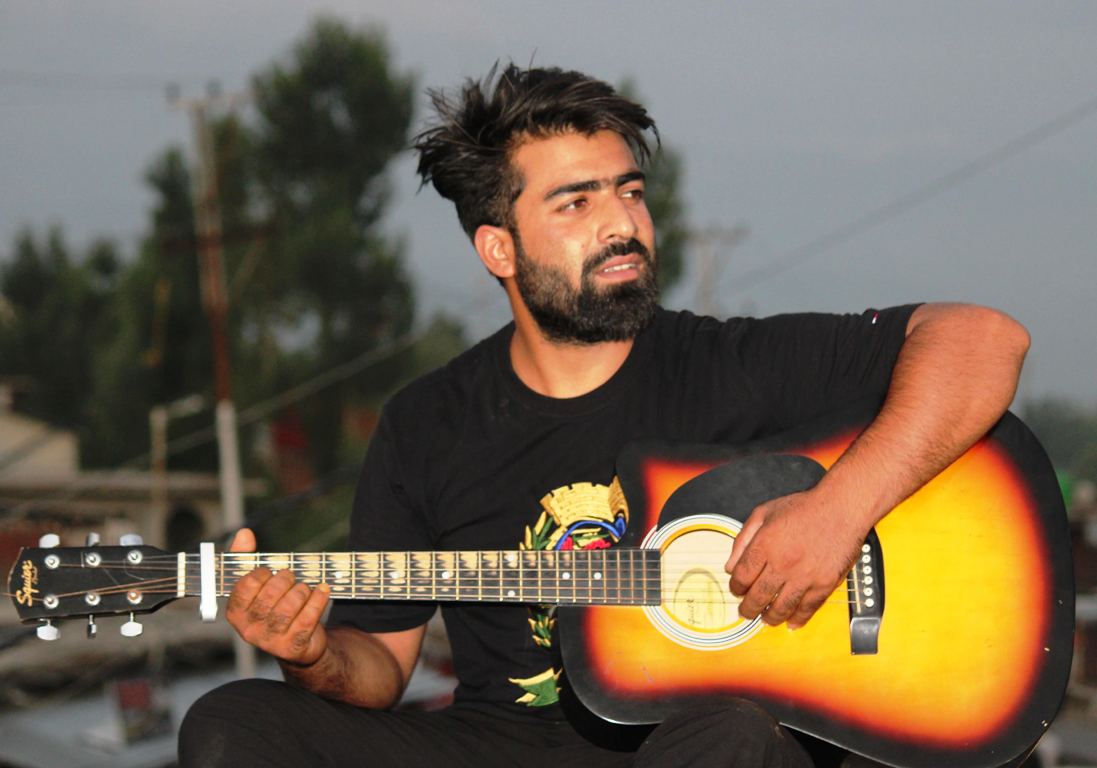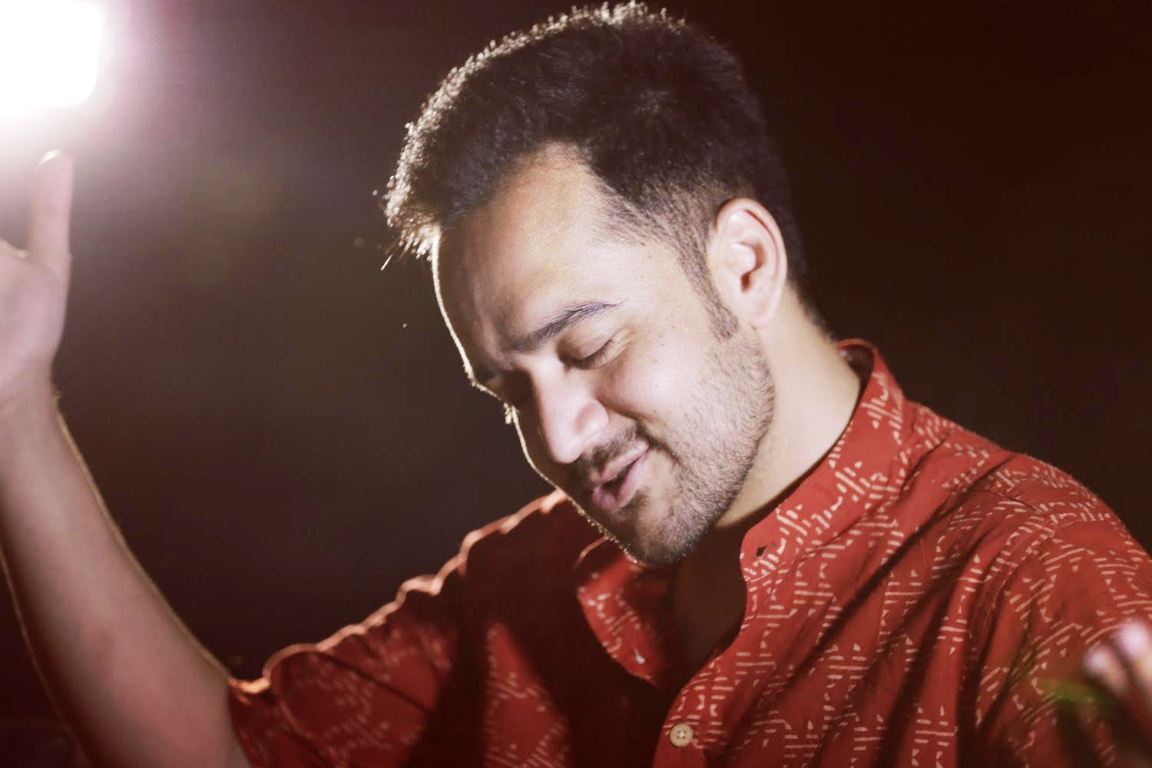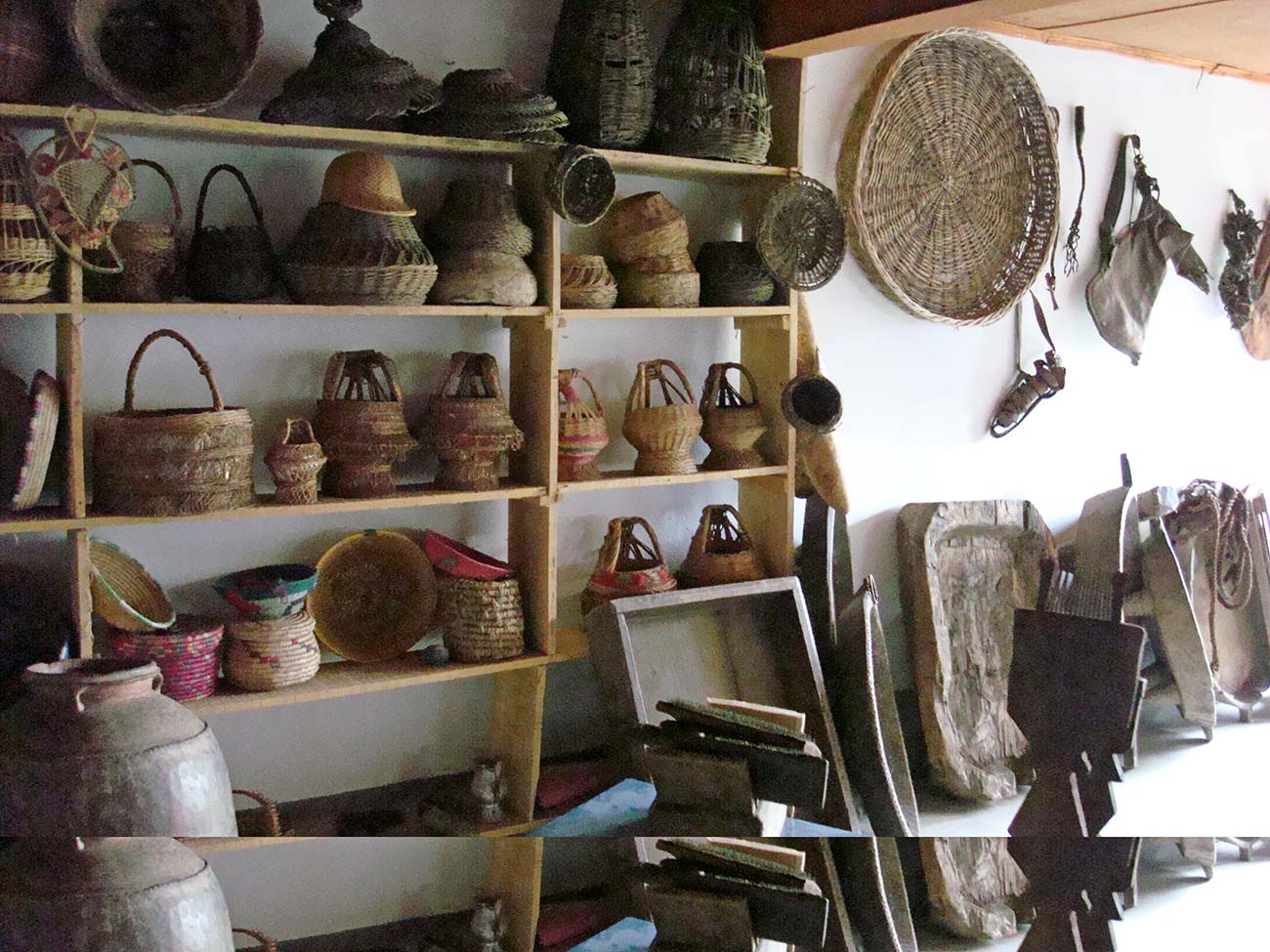Waqar Khan and Ishfaq Kawa’s songs on Youtube have fetched them millions of views. Their emergence in Kashmir’s cultural space was partly the outcome of the massive restrictions that limited people to their homes for more than a year now, reports Syed Samreen

Ishfaq Hussain Kawa doesn’t regret leaving his job at a hotel in Hyderabad. Instead, he thanks his stars that his career in singing and song-writing got a kick-start in the same hotel. Kawa travelled all the way to Hyderabad to work as a waiter, and returned as a virtual star, in his own right.
Kawa, 25, hails from Shadipora village in Bandipora. He completed his education from higher secondary Sumbal followed by Bachelors in Hotel Management. He lives with his parents, two brothers and a sister.
The dream of becoming a vocal artist kept him awake during the nights. The choice of his parents was for him to study more and get a job but, a determined Ishfaq didn’t fail to keep following his dream.
Inspired By Concerts
After the completion of studies, he left Kashmir for the job of a waiter in a five-star hotel in Hyderabad. It was there he got acquainted with the power of music and to a fair extent the use of social media as a platform that anybody can use.
The embellished halls of the hotel and the concert nights that used to take place between 6 pm till midnight stoked the inner vocalist of his. He could see how the music brings together lot of people and how the singers are as good professionals as others are.
It was there in the hotel – while as waiter, that one day, he decided to perform live in front of a whopping five hundred people. Unlike any other singer’s maiden performance, Kawa’s performance fetched him a standing ovation from the entire crowd and won hundreds of hearts. The performance gave him confidence and a hunger to pursue the field of singing, writing and composing songs.
A Song For A Mother
At the moment, Ishfaq has become an online phenomenon and Kashmir’s very own YouTube celebrity because of his viral song Nundbaani Yaar Myaani. The song narrates the story of a mother who grows old in search of her disappeared son.
“We all have grown up witnessing strife around us. I wanted to dedicate a song to all the mothers who have lost their sons to the conflict and the ones who are still in search of them,” Kawa said in a stifled voice.
He said it took him around a week to write the song followed by a story for the music video.

The thing that’s exceptional with Ishfaq is that he has himself done the job of a singer, songwriter, composer and an actor as well. The song has now racked up more than 2.4 million views on YouTube, in just four months. By all means, it is an outstanding performance and a piece of music and poetry that links the art with the contemporary Kashmir.
Ishfaq has received appreciation from Yasser Desai and Kailash Kher. The duo even promoted one of his songs.
“It’s always good to be appreciated for one’s work. I still remember my first song. It was a Kashmiri translation of the famous Bollywood song Channa Mereya,” he said. “I have started my career by translating Bollywood songs into Kashmiri because people love to listen to them here,’ Sort of a parody, this speciality is quite popular in Kashmir culture. People translate the hit songs of the Bollywood and then they are sung in almost the same fashion and it has created its own market.
Chota Nusrat
Another social media sensation, Waqar Khan, is known as Kashmir’s very own Nusrat Fateh Ali Khan. Khan is also a gold medallist and an aspiring academician. He belongs to Karnah, Kupwara and lives in a family of three sisters, one brother and his parents.
Khan, 25, is a post-graduate in political science from Indira Gandhi National Open University.
“Singing has always been my passion. I have been inclined towards Sufi and folk singing since childhood. I participated in school competitions,” he said.
Khan has a YouTube channel on which he has uploaded over a dozen songs with over ten million views. His first viral song has over six million views which he had posted in 2018.
“Once I got appreciation from people for my Sufi singing, I decided to learn classical music from Ustad Abdul Ariz Khan from Delhi,” Khan said.
His parents weren’t supportive of his passion in the beginning. But now, since he’s becoming the talk of the town, he has his parents’ share of encouragement as well.
However, Khan doesn’t want to pursue singing as his career. He has worked as a teacher as well, and is now preparing to study for a doctorate programme.
Before uploading videos on social media, Khan has worked with a Spanish band for two years where he used to sing Sufi music.
“Music is a wonderful way to revive and promote our culture and tradition,” Khan said. “More and more youth should come forward and show what hidden talents they possess. In the age of social media, it is extremely easy to start off one’s singing career. So, the valuable and vast platform of social media should be taken benefit from.”
Khan being a resident of Karnah has Pahadi as his mother tongue. So most of his recorded numbers are in Pahadi and Gujri. He later sung many numbers in Urdu and Punjabi as well. He said he is picking up the Kashmiri language and has already started singing. “It is very important for me to learn speaking proper Kashmiri, also my mother tongue,” Khan said. Till he emerges with his own style and form, Khan will continue to be known as a miniature of Ustad Nusrat.
(This was the concluding part of the reportage about the new faces in Kashmir’s cultural space. The first part was published under the title New Virtual Starts.)















